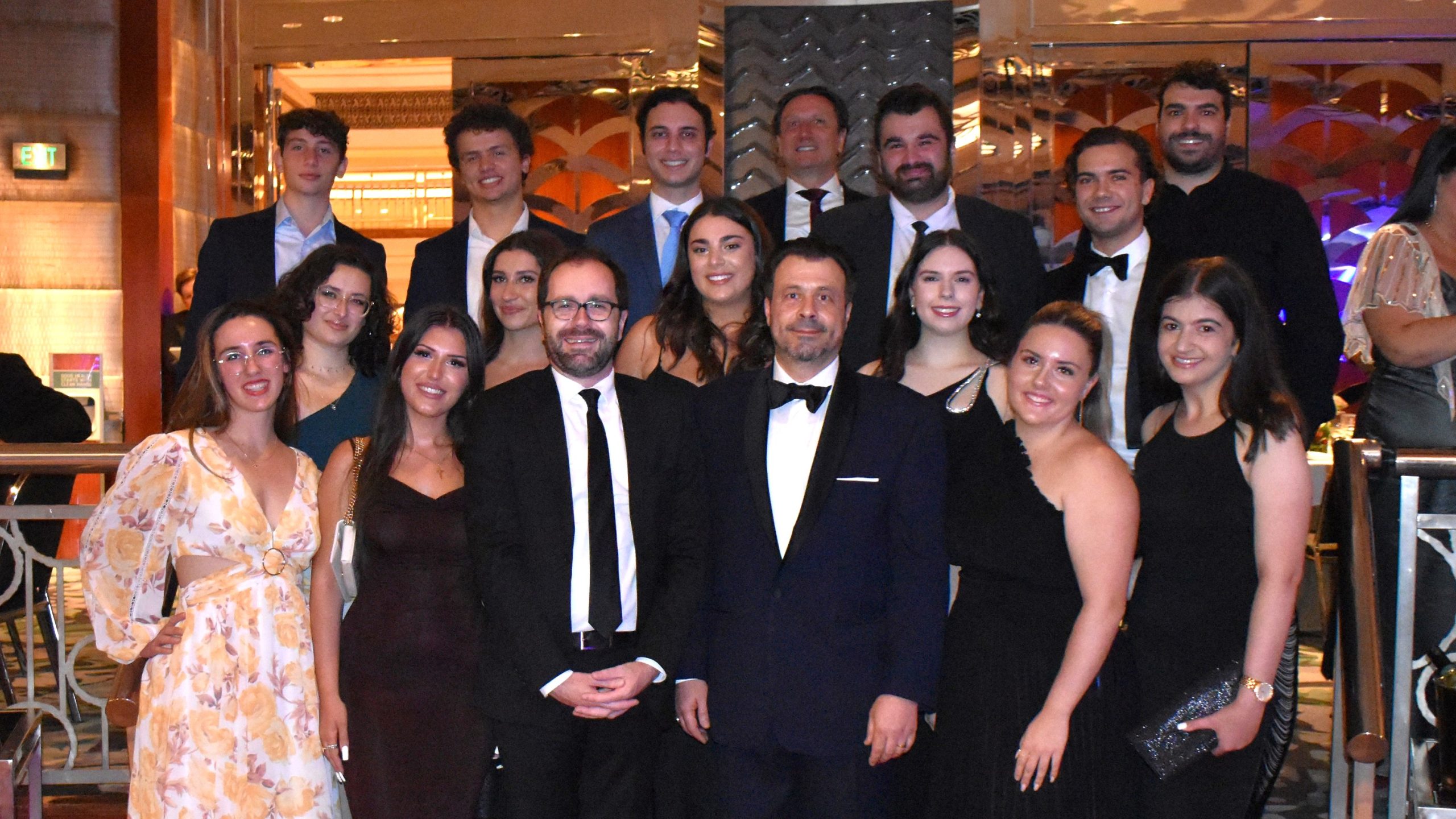By Mary Sinanidis.
If the inaugural Grecian Ball at the Hyatt last year had been about influential Greeks getting together, the 2nd Grecian Ball was about future generations and the carrying on of the torch.
At a time when the future of Greek clubs looks bleak due to a lack of youth participation, it was refreshing to see many young faces present to enjoy performances by Greek folk singer Eleftheria Arvanitaki and the Cats and the Canary; while also paying tribute to the ideals of the start of the Greek War of Independence (25 March, 1821).
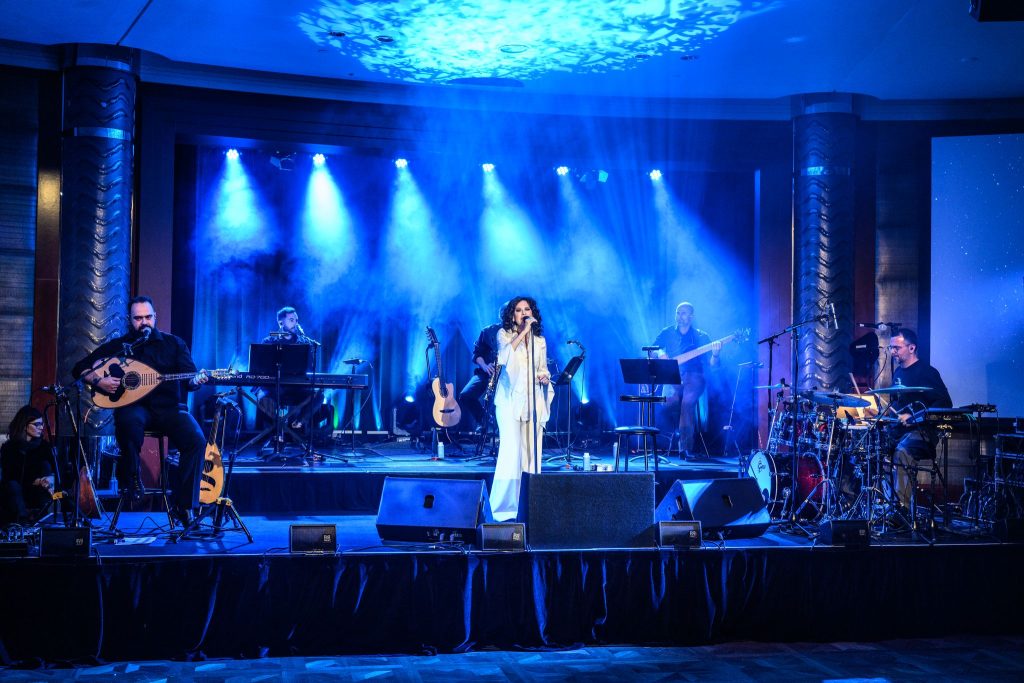
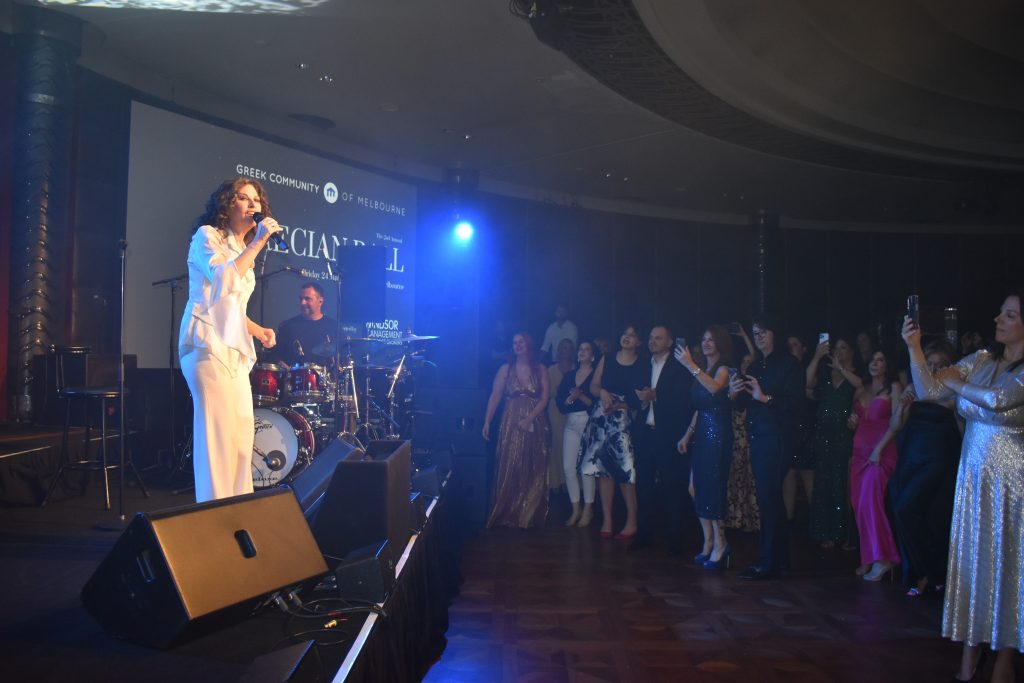
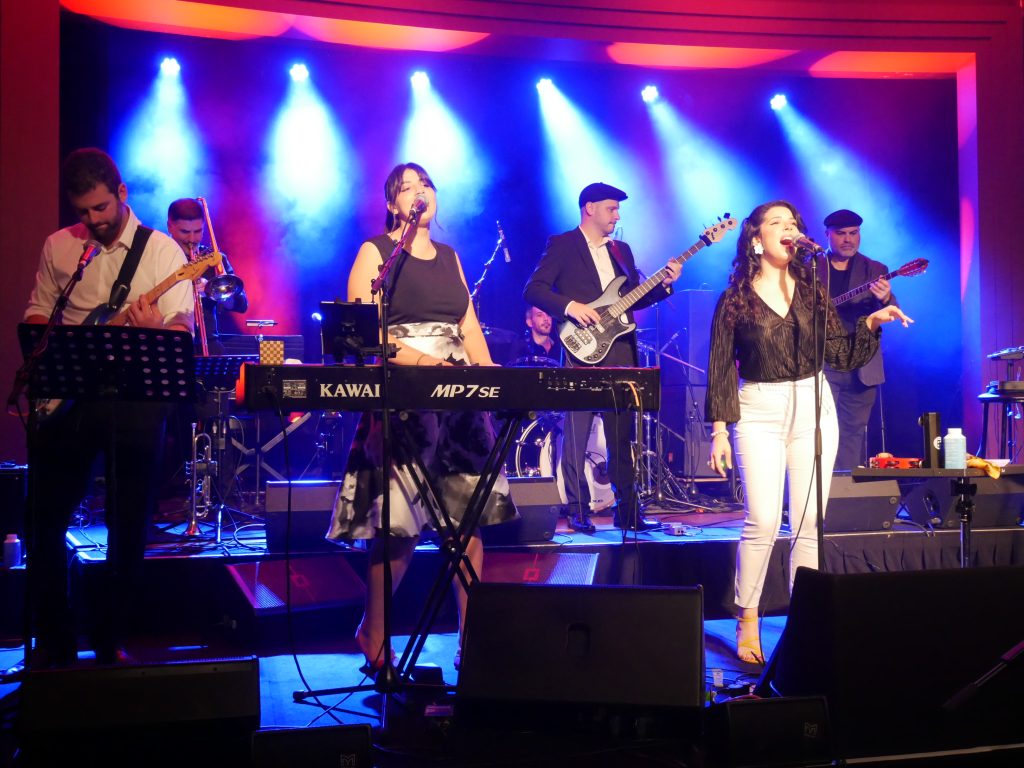
Despite allocated seats, there was a lot of intergenerational mingling. George Kotsirilos, President of the Panarcadian Club, was pleased to see so many young people at the event. His club is also looking to its future.
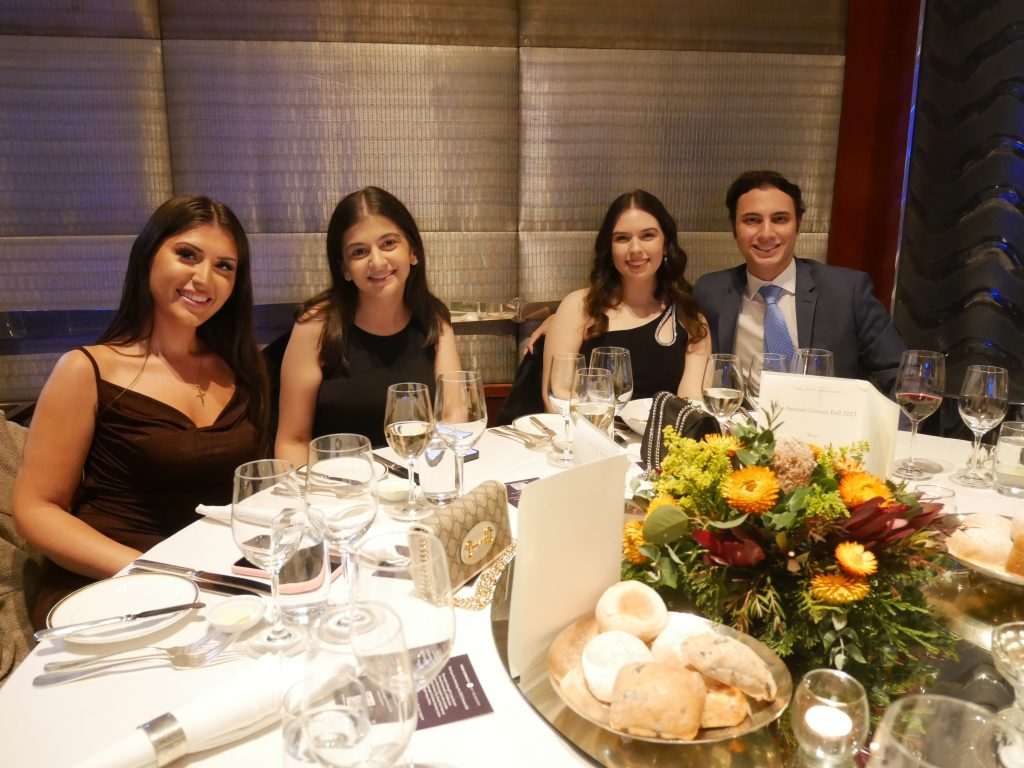
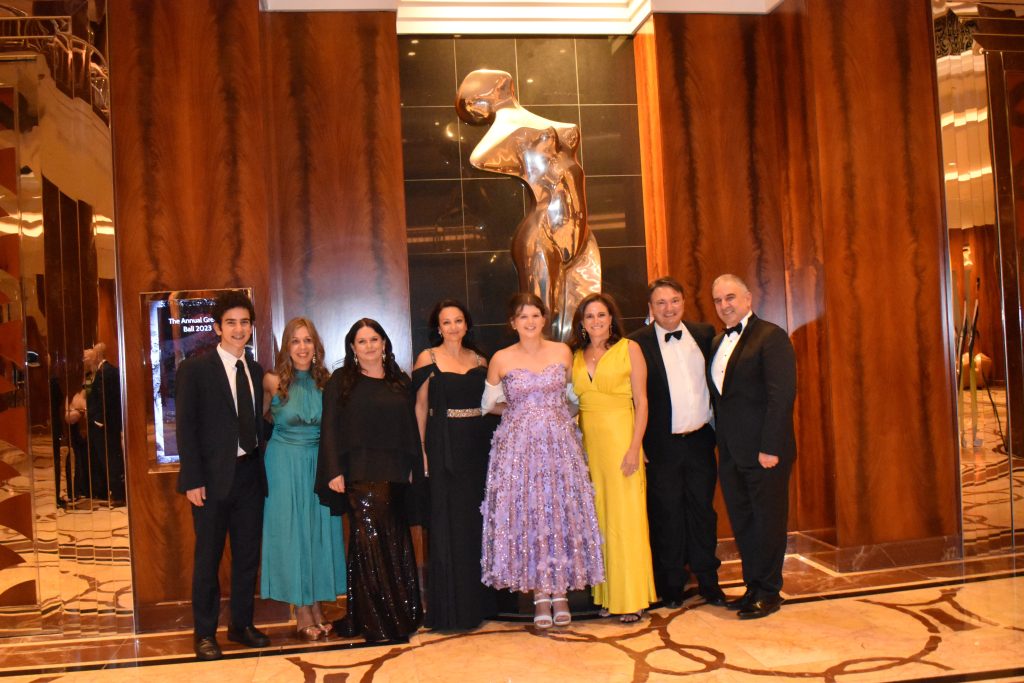
“We have captured the 55-65 year olds who are going to carry the association for the next 20 years,” he said. “The younger ones are familiar with the organisation, and I guess we all go through a stage in our lives where we may have other interests, but there comes a moment when we miss that and return.”
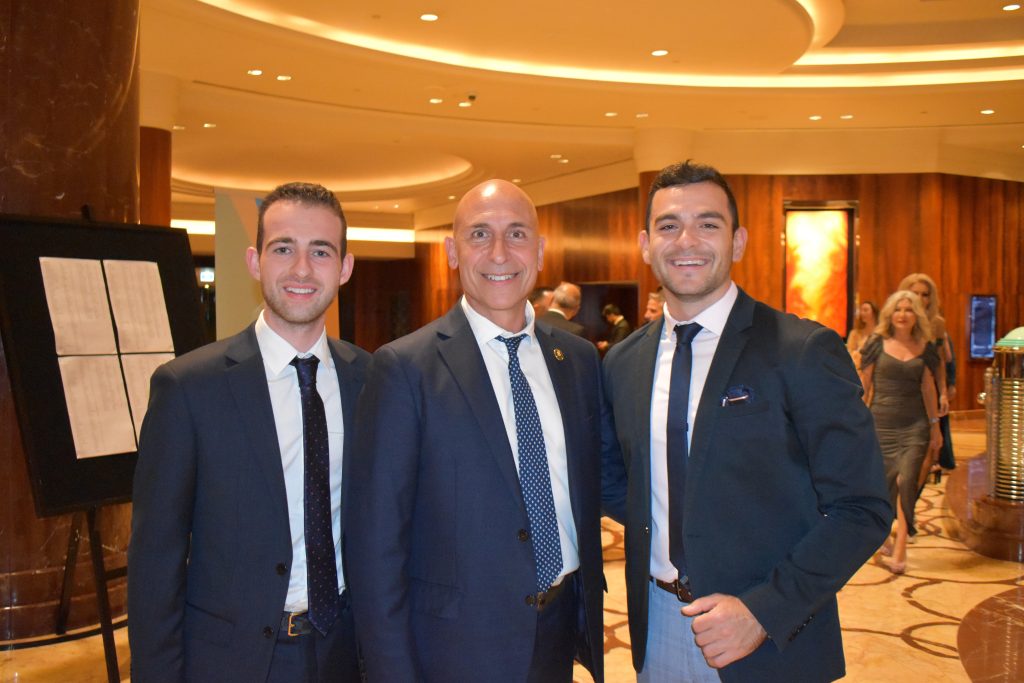
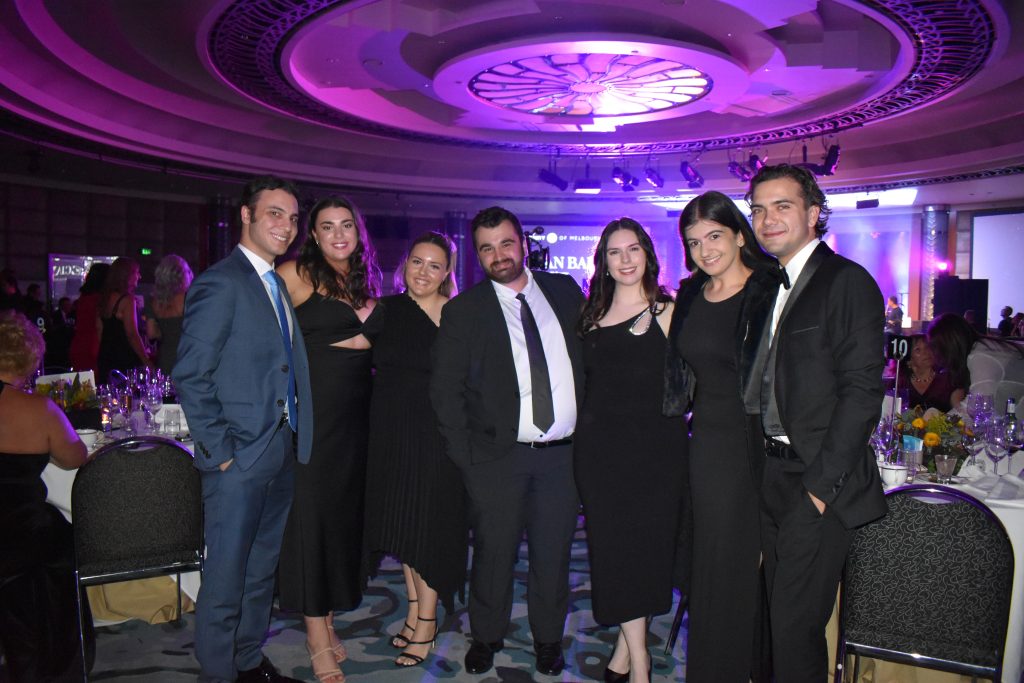
Mr Dean Kotsianis, former president of NUGAS university group and co-founder of the Greek Youth Generator (GYG) for 18-29 year olds, told The Greek Herald that young Greeks are exploring “identities that haven’t existed yet.”
“I think a lot of young people feel they have to fit a cookie cutter model to explain what it means to be Greek and what it means to feel Greek, but we have the freedom and flexibility because of the people we know and we like to do our own thing,” he said.
“We are defining our own presence here. This, for me, means something unique versus what it means for someone else.”
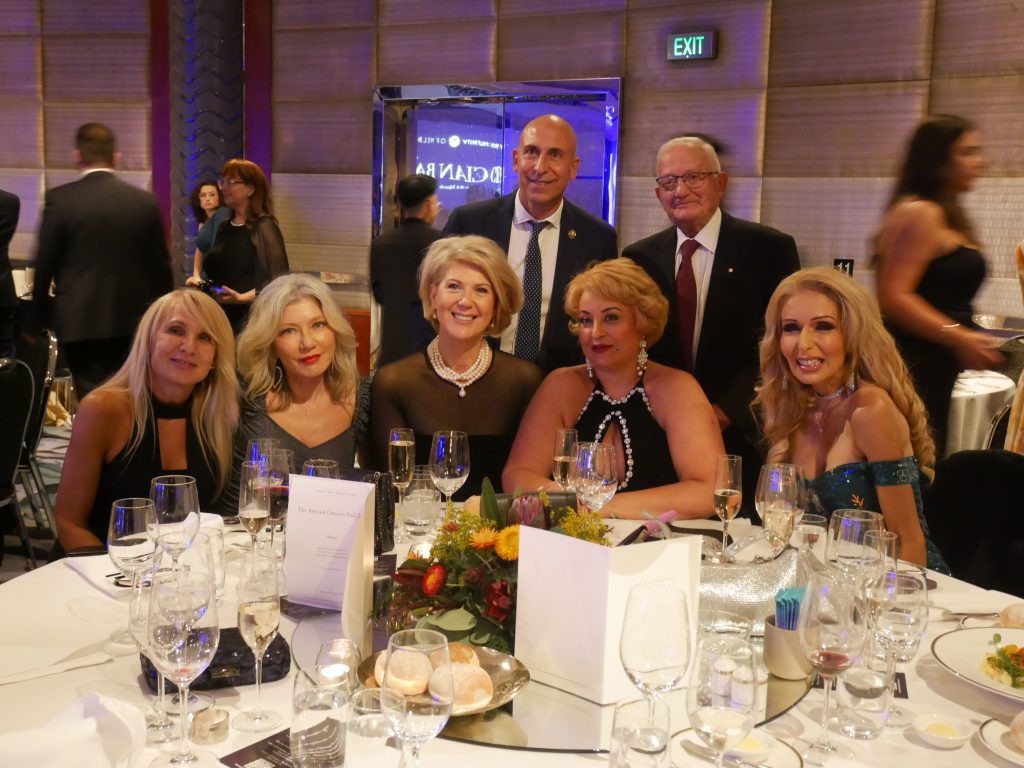
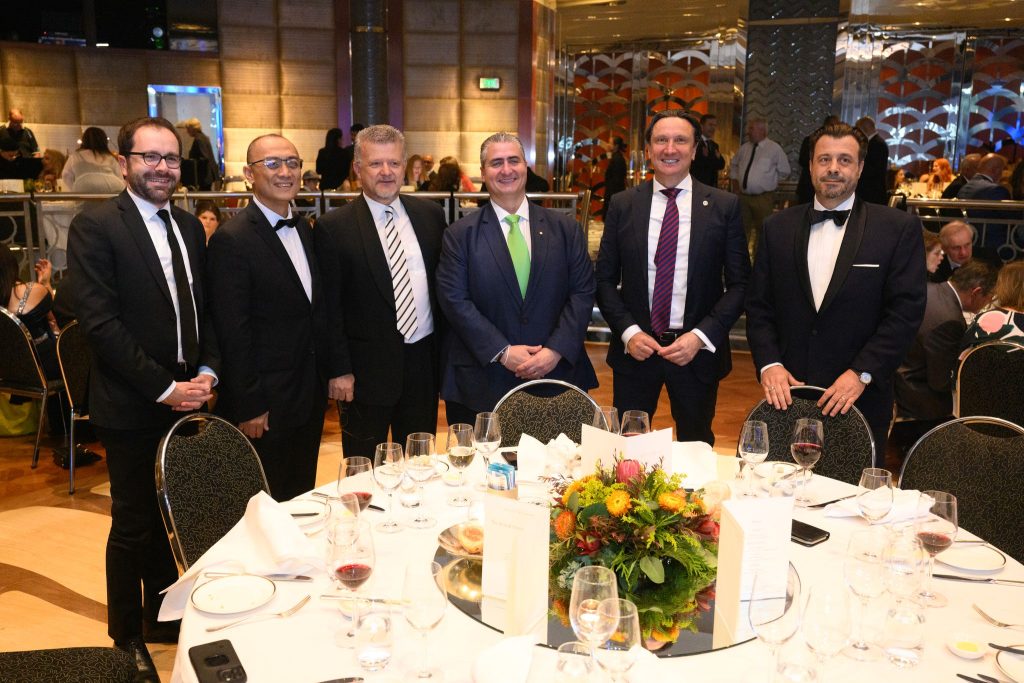
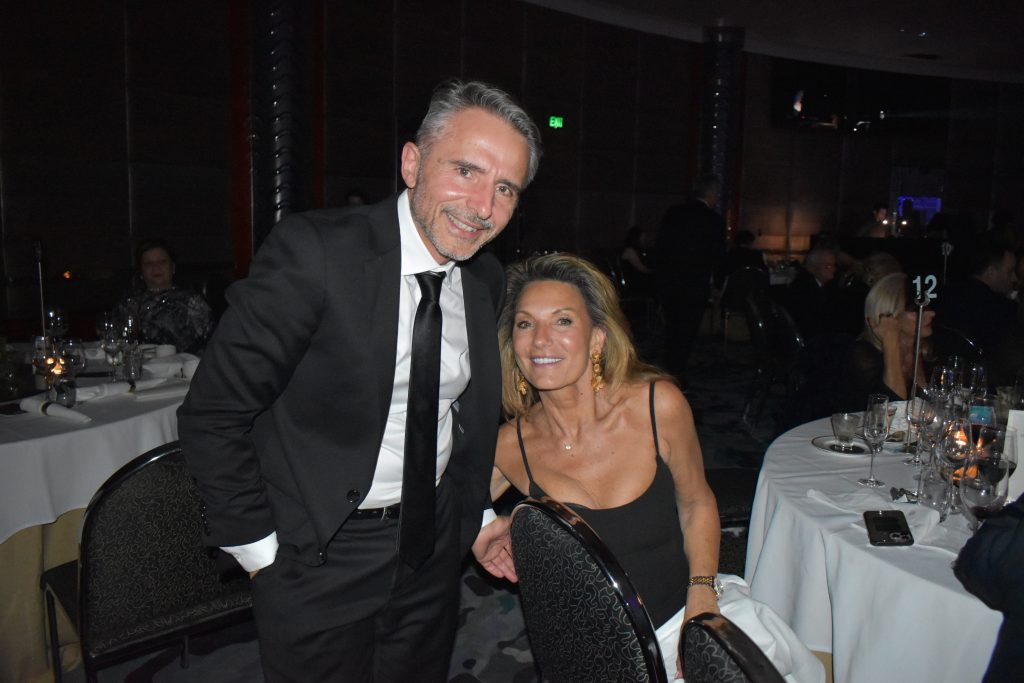
Standing beside him, his university buddy and GYG co-founder Peter Giasoumi, said: “The community isn’t what it once was. It is changing and we can make it accessible to as many people as possible.”
Billy Battista, current president of NUGAS, told The Greek Herald a lot of the influential Greeks in the room had, at some stage, been members of the university society which is this year celebrating its 50th anniversary.
“The Greek Community of Melbourne and NUGAS are very close,” he said. “We have a partnership where we support each other and we work together on initiatives and things like that. We run our NUGAS meetings and some of the events at the Greek Centre and tonight we’re here to support them.”
Support doesn’t come cheap at $250 per head and there was criticism on social media with comparisons of old Grecian Balls in the 1960s where tickets were cheap. Back then, of course, Greeks were struggling migrants and there was a DIY mentality, with association presidents gasping for air while wives served dishes trying not to trip over broods of kids because baby sitters were out of the question. And back then, there were no highlight Greek performers but a band made up of self-taught community musicians.
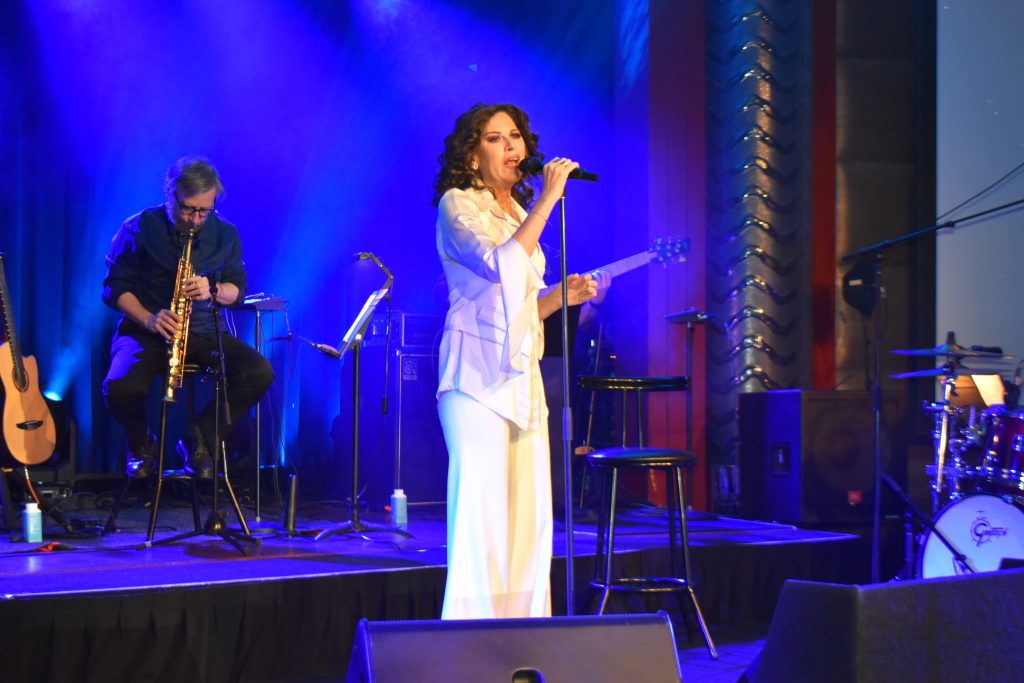
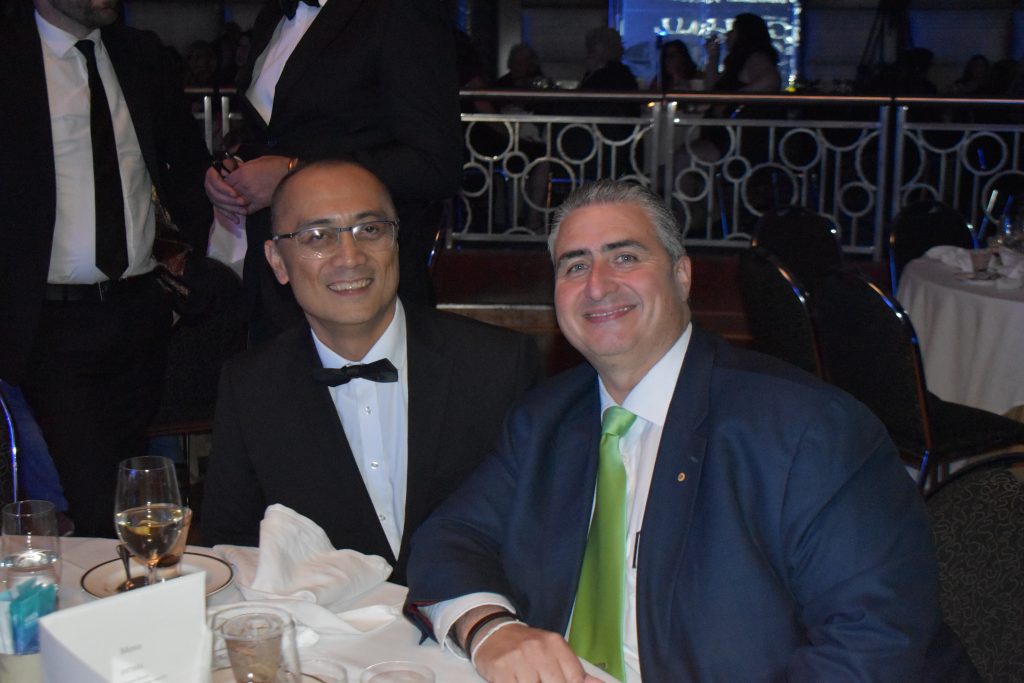
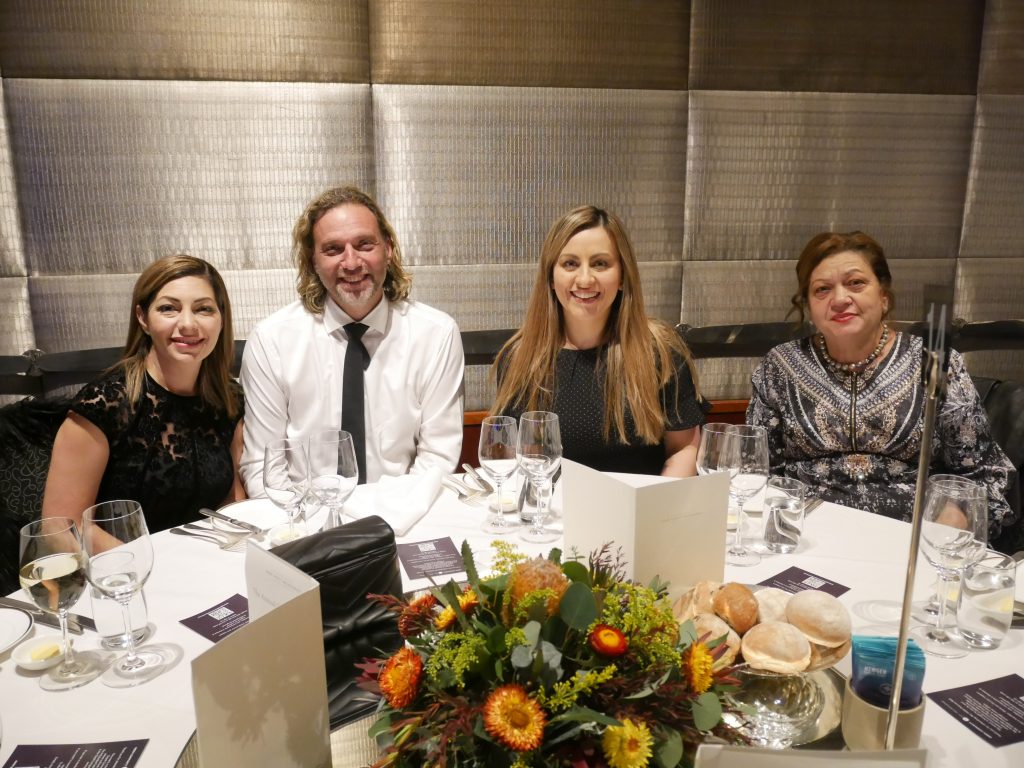
Our circumstances have changed as we’ve become more established. As Nick Staikos said: “This institution is 126 years old. It’s older than Australia’s federation and we should be proud of that.”
Cathy Alexiadis, retired educator and president of the Greek Australian Cultural League (GACL), has been to many dances like the Grecian Ball but as she looked around the crowded room, filled with new and different faces, she said in wonder: “I don’t know as many people here tonight as I usually do.”
With this year’s Antipodes periodical being dedicated to Philhellenes, I asked her: “Would you like me to introduce you to a Philhellene?”
Before long, she and the Hellenic Museum CEO Sarah Craig were talking about philhellenism and coming up with ideas for collaborations which may or may not come to fruition. And in popped academic researcher and author Georgia (Juliana) Charpantidou to introduce herself to both.
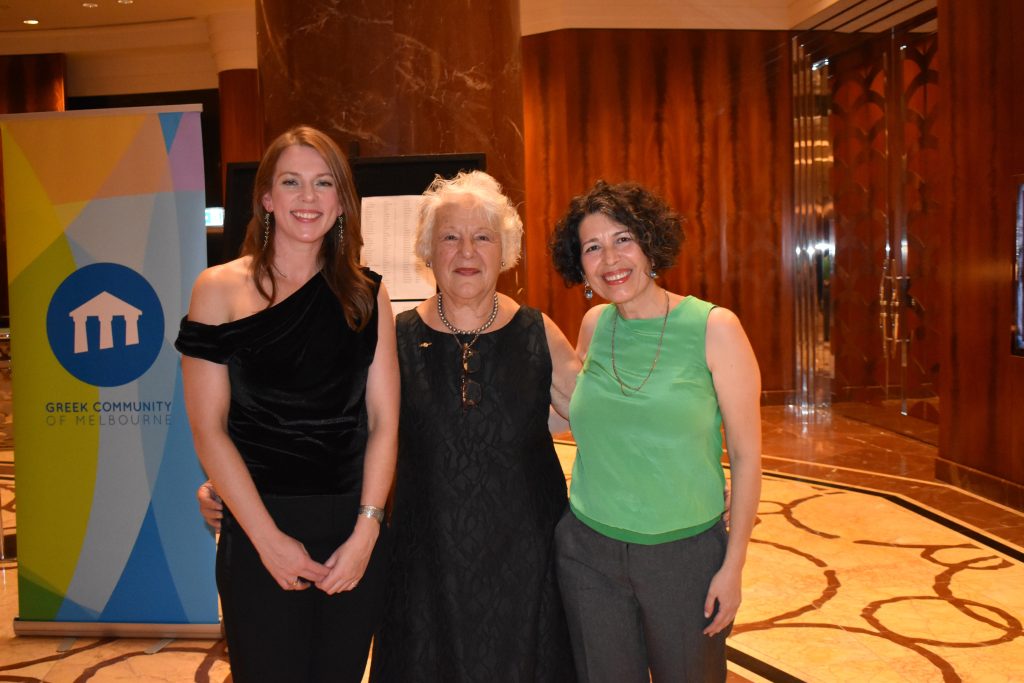
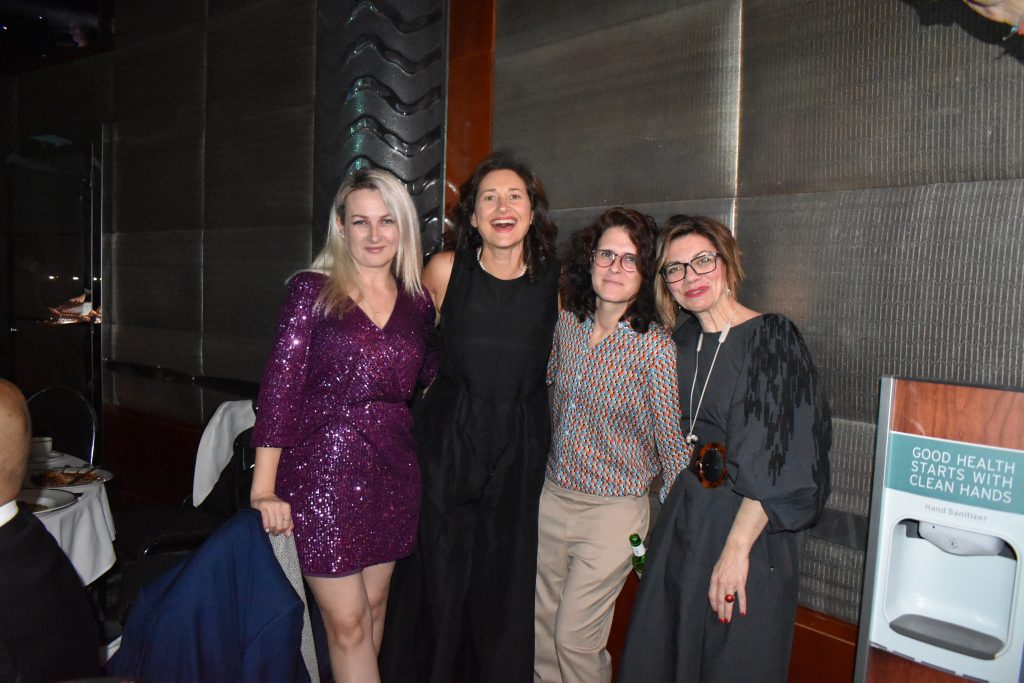
A buzz of networking and self-introductions.
While chatting with the current NUGAS President, Vietnamese Australian Shadow Minister Trung Luu heard the word “NUGAS” and his interest was piqued. He patted the President on the back and said: “I played soccer for NUGAS when I was at uni.”
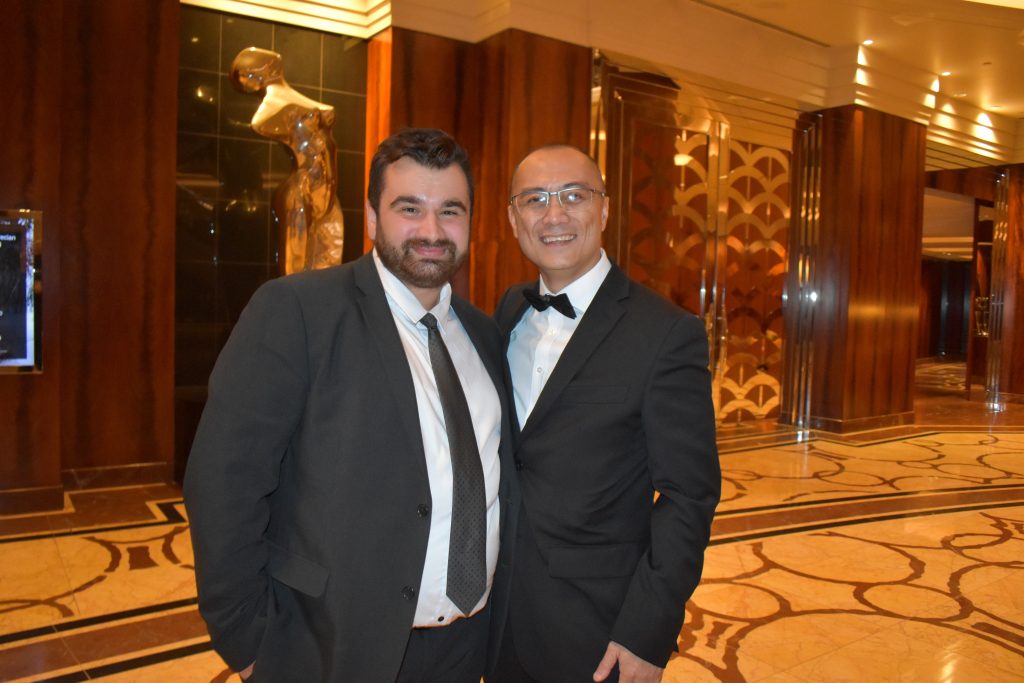
“And you didn’t include that as part of your speech tonight?” we both exclaimed.
“In my speech, I pointed to the similarities of Vietnamese and Greeks,” he told The Greek Herald, referencing the struggle for freedom and oppression Greeks had gone through in 1821 which the Vietnamese can relate to.
Greek Community of Melbourne (GCM) President, Bill Papastergiadis, drew on the global significance of 25 March 1821 which transcends time and place. He spoke of recent interactions with Greek groups in the Ukraine to show that the “triumph and hope” of 1821 “is as relevant today as it was 200 years ago.”
Mr Papastergiadis referred to a meeting with seven Ukrainian parliamentarians this week and an email he received the day before by the President of the Federation of Greek Associations of Ukraine, Alexandra Protsenko, and his dealings with the association since war broke out.
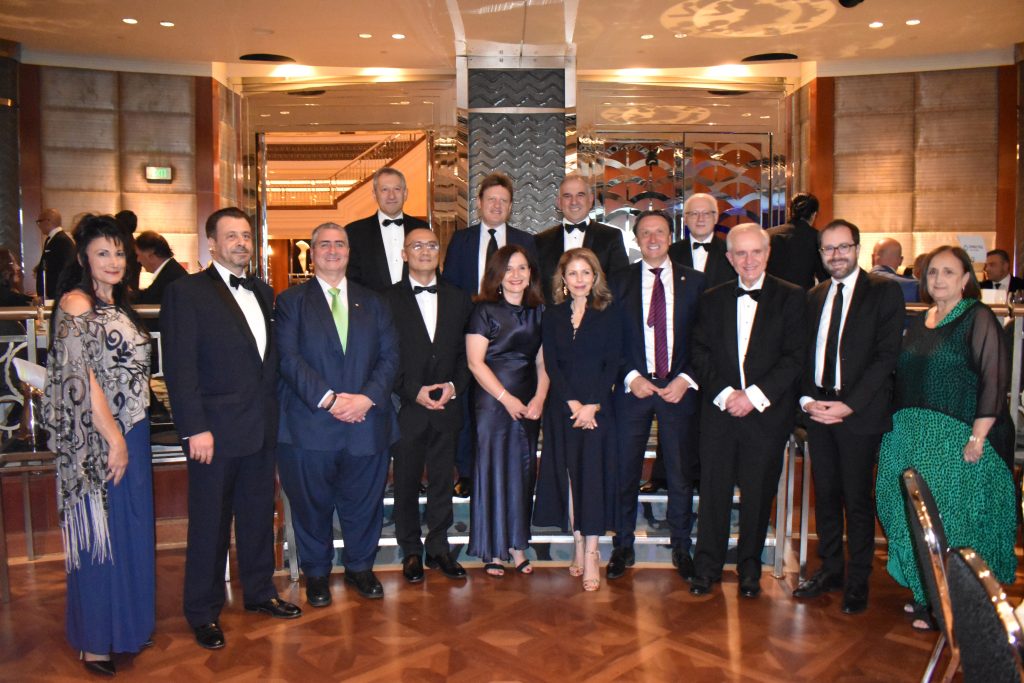
“Here is someone facing a violent battle and, as the parliamentarians indicated, they went to bed one morning with a particular life and by 4.30 the next day, they were living a totally different experience,” he said, adding of the deep relationships forged between Greece and Ukraine historically and more recently when former minister Jenny Mikakos spearheaded a funding campaign to assist Ukrainian refugees in Greece.
“We are fortunate that we live in a multicultural and cosmopolitan state and country which allows us to build relationships across the globe because we can celebrate our identity in this unique way, we have this freedom.”
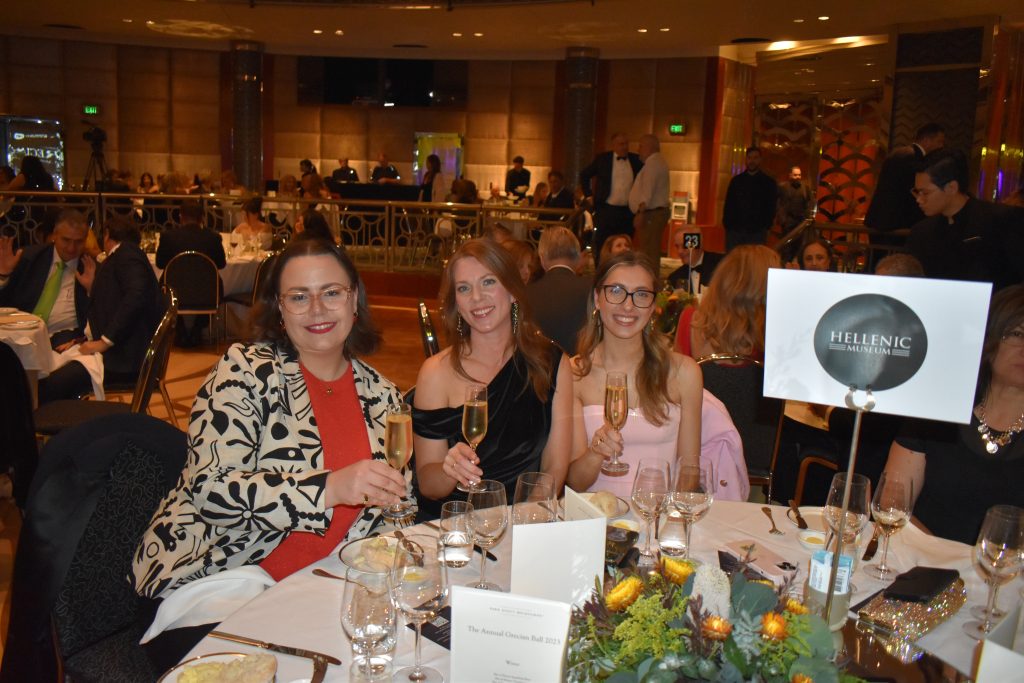
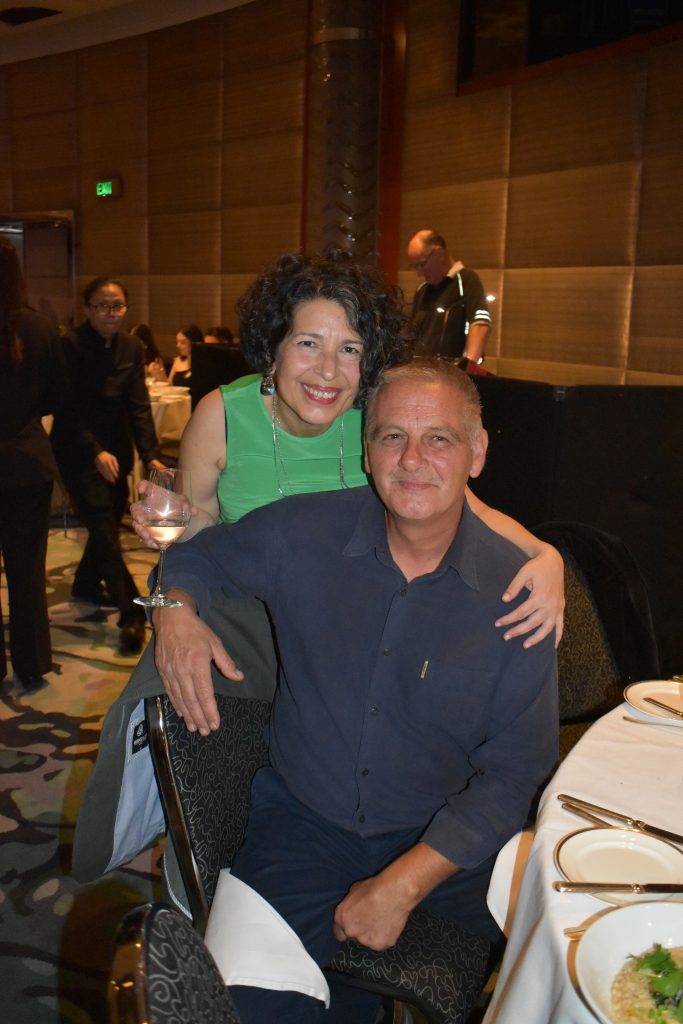
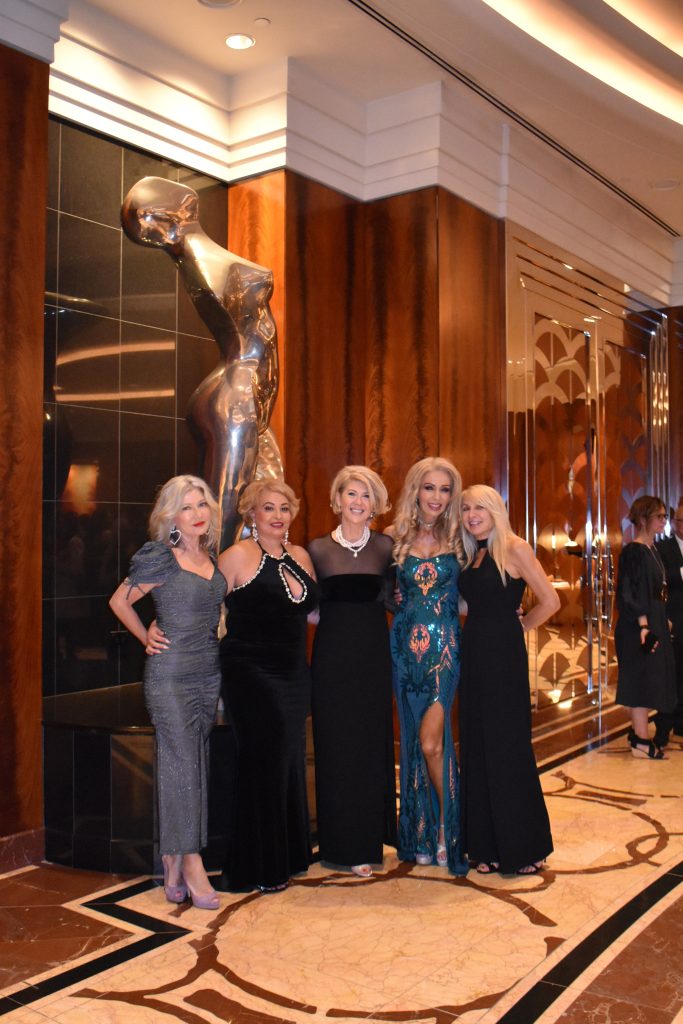
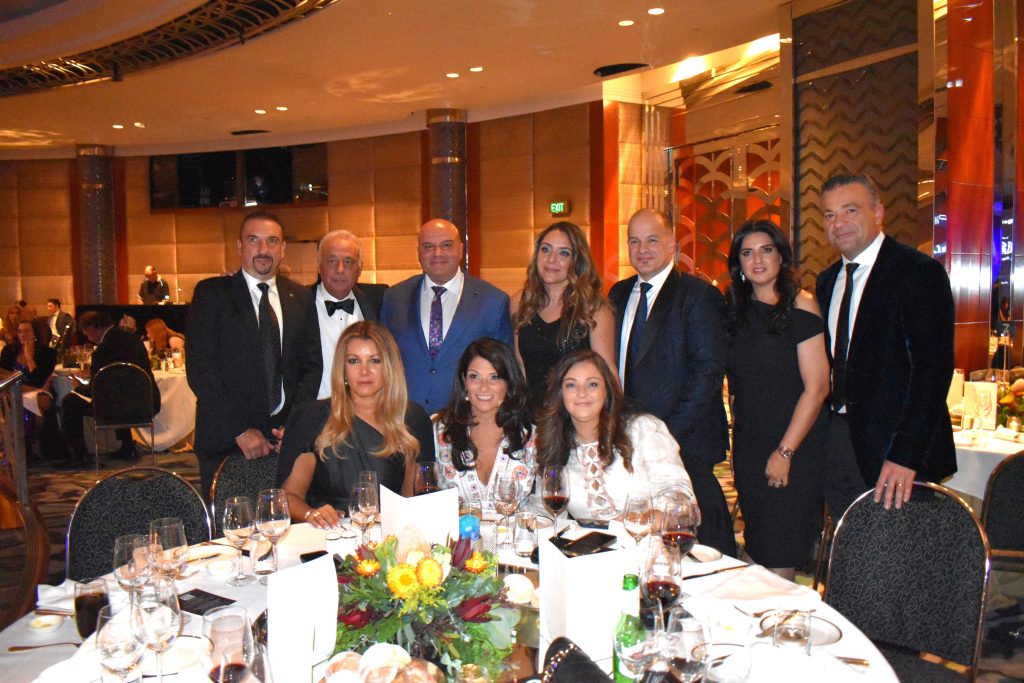
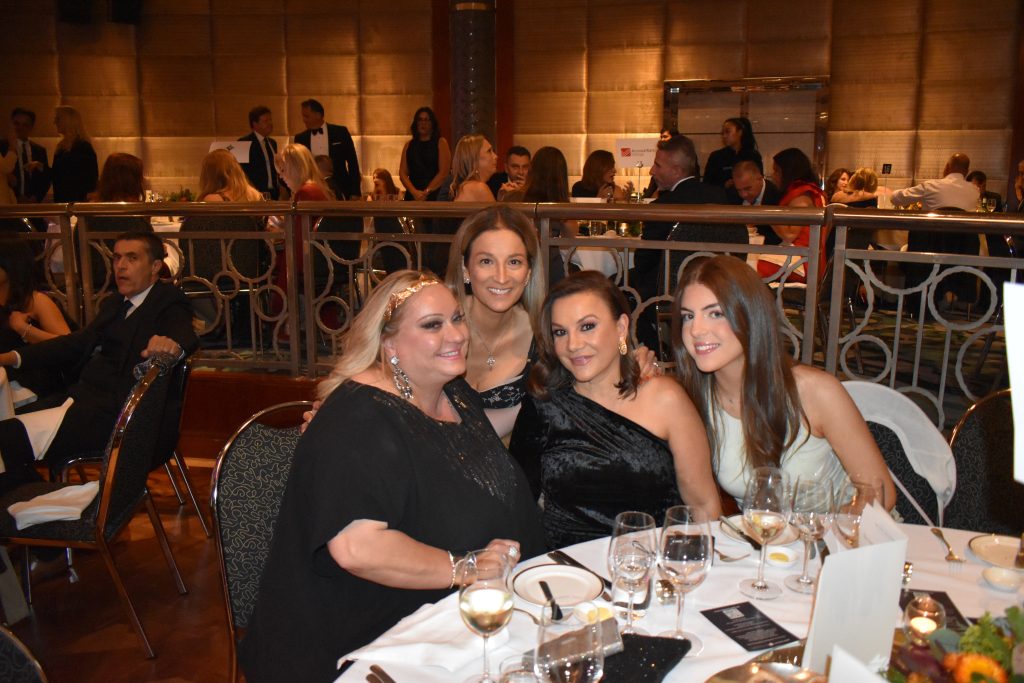
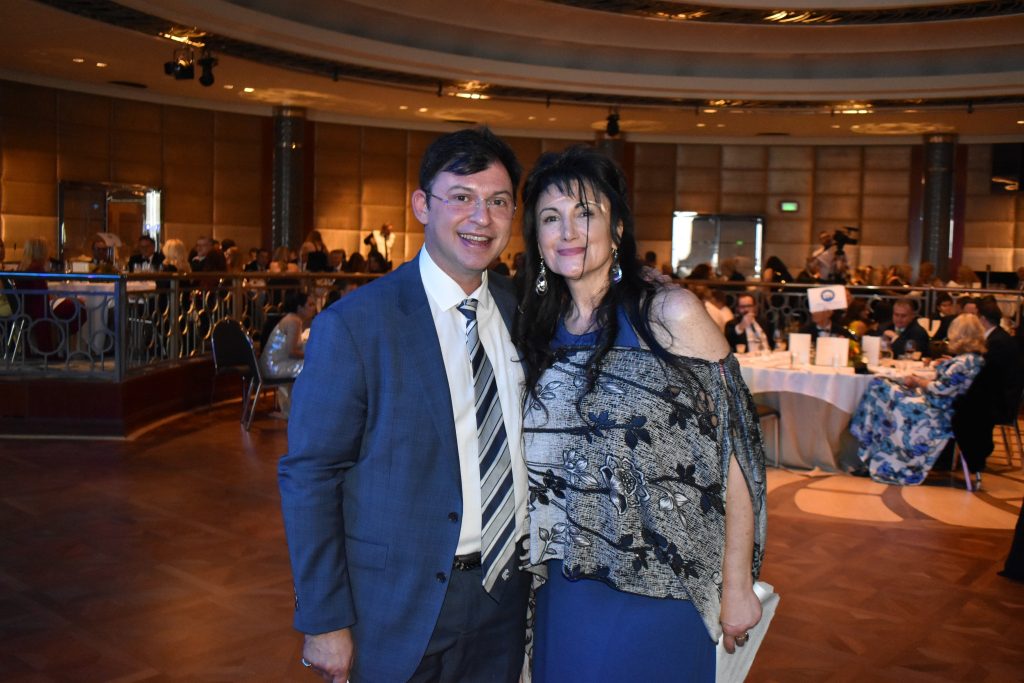
And that’s the real message of the Grecian Ball. The dancing, music, gourmet food, flashing cameras and fashion, three free tickets to Greece and entertaining presentations by emcees Anthea Sidiropoulos and Leonidas Vlahakis were just the icing on a much deeper message. Pollies like Mr Staikos, Mr Luu, Lee Tarlamis MP, Nick Kotsiras, Greek Consul General to Melbourne Emmanuel Kakavelakis and representatives of HACCI, Fronditha, PRONIA and the Greek Community of Melbourne, associations and clubs got together, exchanged ideas and met new people.
What comes of this isn’t obvious the next day. But it sets the tone for the future.

